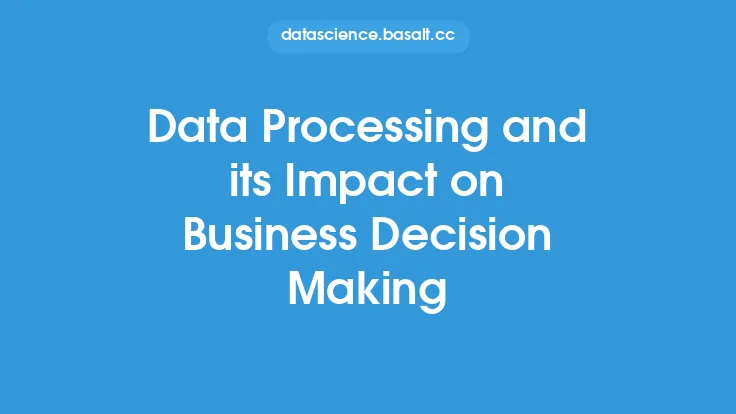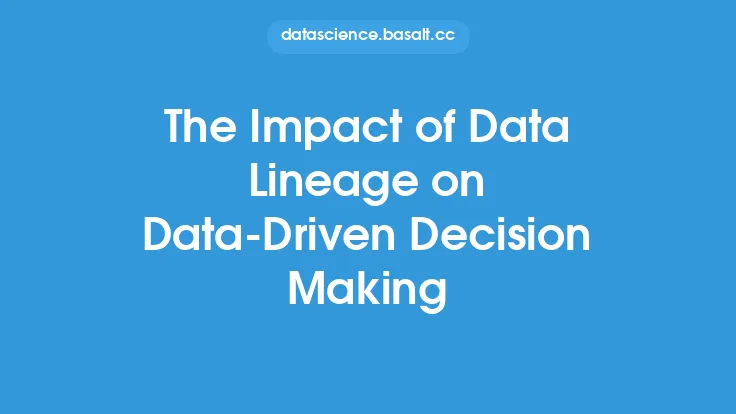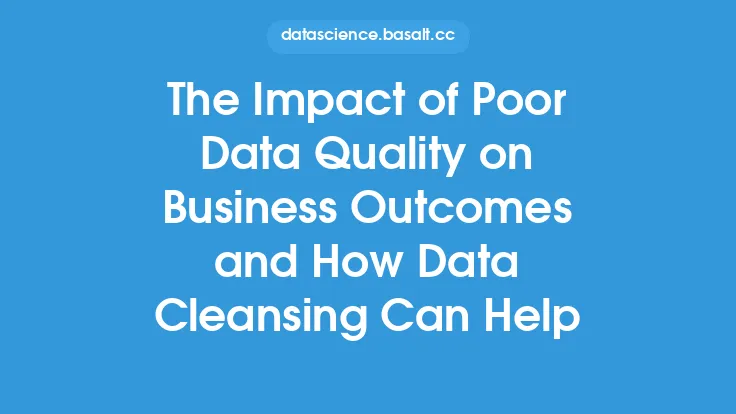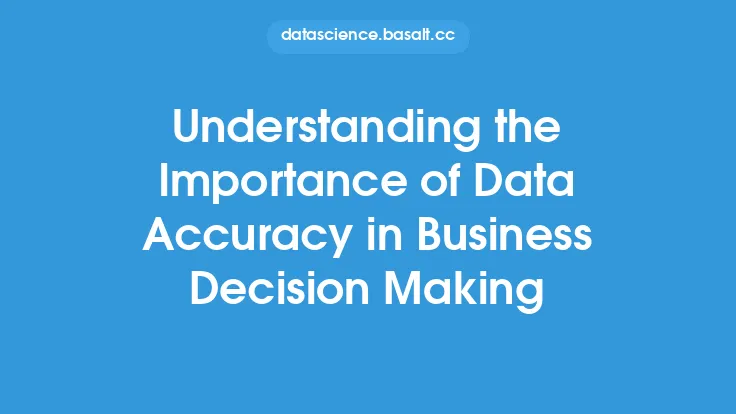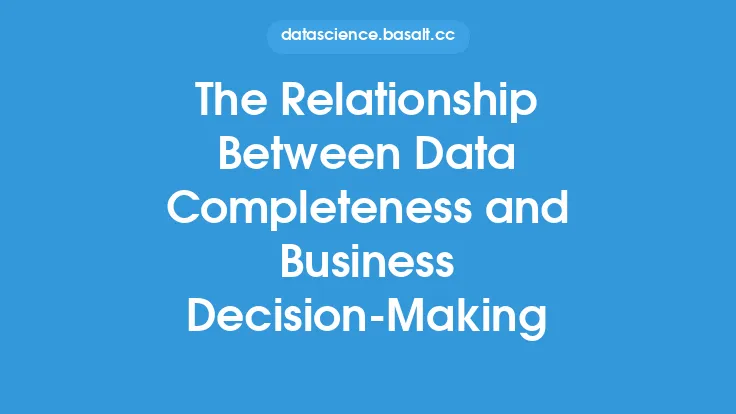Data integrity is a critical aspect of data quality that refers to the accuracy, completeness, and consistency of data. It is the foundation upon which reliable data analysis and business decision-making are built. In today's data-driven world, organizations rely heavily on data to inform their strategic decisions, and poor data integrity can have far-reaching consequences. In this article, we will delve into the concept of data integrity, its impact on business decision-making, and the measures that can be taken to ensure data integrity.
What is Data Integrity?
Data integrity refers to the state of data being accurate, complete, and consistent across all systems and applications. It involves ensuring that data is not corrupted, altered, or deleted during its lifecycle, from creation to storage and retrieval. Data integrity is not just about the data itself, but also about the processes and systems that manage and maintain it. It requires a comprehensive approach that involves people, processes, and technology to ensure that data is reliable, trustworthy, and consistent.
The Impact of Data Integrity on Business Decision Making
Data integrity has a significant impact on business decision-making. When data is accurate, complete, and consistent, organizations can rely on it to make informed decisions. However, when data is poor, it can lead to incorrect conclusions, misguided strategies, and ultimately, poor business outcomes. Poor data integrity can result in a range of negative consequences, including financial losses, reputational damage, and decreased customer satisfaction. On the other hand, high-quality data can lead to improved decision-making, increased efficiency, and better business outcomes.
Types of Data Integrity
There are several types of data integrity, including:
- Entity integrity: This refers to the uniqueness of each record in a database. It ensures that each record has a unique identifier and that there are no duplicate records.
- Referential integrity: This refers to the relationships between different data entities. It ensures that the relationships between data entities are consistent and that data is not orphaned or inconsistent.
- Domain integrity: This refers to the validity of data within a specific domain. It ensures that data conforms to specific rules and constraints, such as data formats and ranges.
- User-defined integrity: This refers to the rules and constraints defined by users to ensure data integrity. It includes rules such as data validation and data normalization.
Causes of Poor Data Integrity
Poor data integrity can be caused by a range of factors, including:
- Human error: Human error is a common cause of poor data integrity. It can occur during data entry, data processing, or data storage.
- System errors: System errors can also cause poor data integrity. It can occur due to software bugs, hardware failures, or network errors.
- Data migration: Data migration can also cause poor data integrity. It can occur when data is transferred from one system to another, and the data is not properly validated or transformed.
- Lack of data governance: Lack of data governance can also cause poor data integrity. It can occur when there are no clear rules or policies for managing and maintaining data.
Measures to Ensure Data Integrity
To ensure data integrity, organizations can take several measures, including:
- Data validation: Data validation involves checking data for accuracy and completeness. It can be done using automated tools or manual processes.
- Data normalization: Data normalization involves transforming data into a standard format. It can help to ensure consistency and accuracy of data.
- Data backup and recovery: Data backup and recovery involve creating copies of data and restoring it in case of data loss or corruption.
- Access control: Access control involves restricting access to data to authorized personnel. It can help to prevent unauthorized changes or deletions of data.
- Data auditing: Data auditing involves monitoring and tracking changes to data. It can help to detect and prevent data corruption or unauthorized changes.
Best Practices for Ensuring Data Integrity
To ensure data integrity, organizations should follow best practices, including:
- Developing a data governance policy: A data governance policy outlines the rules and procedures for managing and maintaining data.
- Implementing data quality checks: Data quality checks involve validating and verifying data for accuracy and completeness.
- Using data validation tools: Data validation tools can help to automate the process of data validation and ensure data integrity.
- Providing training to employees: Providing training to employees can help to ensure that they understand the importance of data integrity and how to maintain it.
- Continuously monitoring data: Continuously monitoring data can help to detect and prevent data corruption or unauthorized changes.
Technical Aspects of Data Integrity
From a technical perspective, data integrity can be ensured using a range of techniques, including:
- Checksums: Checksums involve calculating a digital signature for data to ensure that it has not been corrupted or altered.
- Digital signatures: Digital signatures involve using encryption and decryption techniques to ensure the authenticity and integrity of data.
- Data encryption: Data encryption involves converting data into a coded format to prevent unauthorized access.
- Access control lists: Access control lists involve restricting access to data to authorized personnel and systems.
- Transaction logs: Transaction logs involve tracking and recording changes to data to ensure that they can be recovered in case of data loss or corruption.
Conclusion
In conclusion, data integrity is a critical aspect of data quality that has a significant impact on business decision-making. Poor data integrity can lead to incorrect conclusions, misguided strategies, and ultimately, poor business outcomes. To ensure data integrity, organizations should take a comprehensive approach that involves people, processes, and technology. This includes developing a data governance policy, implementing data quality checks, using data validation tools, providing training to employees, and continuously monitoring data. By following best practices and using technical techniques, organizations can ensure the accuracy, completeness, and consistency of their data, and make informed decisions that drive business success.
